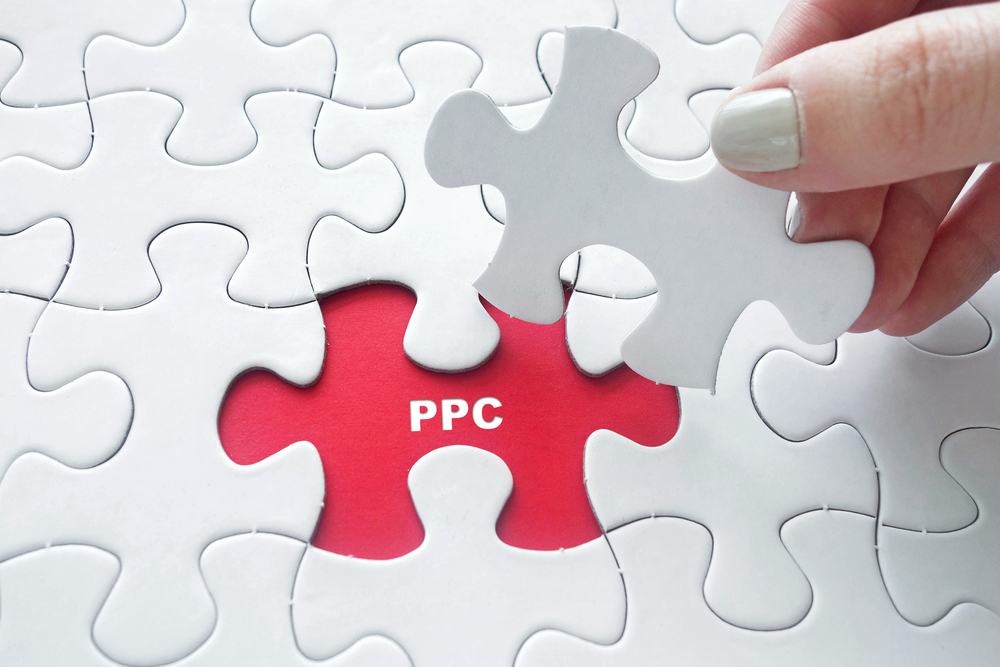You have a great website and you started getting the hang of your social media content planning. If you’re like most people, you may not be an expert of the wonderful world of online strategy, but you don’t mind learning along the way to take your business to the next level. We’re with you and we get it.
As experts in this field, we work with online marketing strategy every day and know a thing or two about it. So, what is a PPC keywords list anyway and what are keyword variations? It may sound like a foreign language right now, but by the end of this explanation, you’ll be fluent in no time. And if not, we are just a phone call away. Now, let’s get started!
What is PPC and how does it work
First, let’s define what PPC is and is not. PPC, also known as pay per click, is an online advertising business model in which advertisers pay a publisher every time an ad is clicked. This is an optimal website traffic generation tool and works wonders.
If you’re not yet part of the PPC club, now is the time to join. PPC is a phenomenal way to target your potential customers and increase website traffic. PPC is not an organic lead generator. Is it like buying visits to your site? Yes, and it’s incredibly effective.
One of the most popular forms of PPC is search engine marketing (SEM). This method allows advertisers to bid for ad space on those sites that are sponsored by search engines.
When someone searches for a keyword that relates to your business offering, a link sponsored by the search engine will appear with your company’s business information on it. Whenever this ad is clicked, the visitor is sent to your website and you pay a fee. However, at the end of the day, this small fee becomes trivial since the idea is for those visitors to become customers.
This makes the visit worth more than what you are paying for, converting your visits to a huge profit. And that’s how we like it! But if that isn’t enough to convince you to join the bandwagon, we have a few other reasons why PPC is good and benefits everyone:
- Searchers: According to available research, consumers click on paid search ads more than any other form of online advertising. This indicates that those who are searching on the web don’t mind this form of advertising as long as it fits their needs.
Since the ads are highly relevant to the products and services being searched, it is highly likely they will be clicked. Google’s formula helps in making the connections between online advertising and consumer needs.
- Advertisers: This model gives advertisers a direct opportunity to place unique ads with their products or services on the radar of the targeted audience actively looking for what they have to offer. Traffic is measured based on how closely aligned the traffic flow to your website is to the online ad that is posted. This makes for a win-win opportunity for both consumers and advertisers.
- Search engines: PPC allows search engines to cater to and target searches and advertisers simultaneously. Search engines are looking to provide relevant results while generating a highly targeted revenue stream.
What’s great about PPC marketing is that ad networks reward everyone. This includes those with the highest quality ads and the most popular ads. Still not convinced this is the way to go?
Take a look below and see if this reflects your thought process:
- I want to grow my customer base.
Are you looking to connect to the searchers looking for your product or service? One of the best things about PPC is that it connects you to searchers who are actively seeking what you have to offer. PPC puts you in an ideal position to respond by providing an offer that’s relevant to their search query. It’s a match made in heaven.
- I want to generate leads but don’t want to spend a lot.
We know how it is. A marketing budget can eat away at resources. The beauty of using PPC in your online marketing strategy is it’s highly targeted approach. For this reason, it allows you to reach potential customers that have indicated in the search engine that they are in the market for products and services like yours. Hence, the visitors that come to your website are ready to purchase. You will also enjoy a discount for making the search engine users happy.
Ok, now that we’ve convinced you of this win-win opportunity for your business, let’s dig a little deeper about creating PPC campaigns and how it’s done.
PPC keyword research and how it’s done
Developing a PPC keyword list is time-consuming but instrumental in the success of your campaign. In fact, your whole PPC campaign is built around keywords and the most successful advertisers regularly refine this list and grow their customer reach. Yet, it is not as simple as understanding keyword variations. Here are a few key elements that you must include in your PPC campaign:
- Relevance: This goes without saying. Your PPC campaign must be geared towards targeting high-quality leads that are interested in your product and service offering. If not, you’re wasting your money. Using targeted keywords will lead to more profit. All keywords you bid on should be closely related to what you’re offering.
- Exhaustive: A keyword list should include a long tail search. Long tail keywords are more specific and less used but generate the most traffic.
- Expansive: Adapt, adapt, adapt! You want your PPC campaign to be flexible and moldable to your current and changing needs.

Begin looking through your company’s website initially and identifying core words and phrases to describe your business. See any keywords or themes there? Once you’ve identified them, you may want to get organized. Remember to group keywords to appropriate themes.
You’ll also want to include branded keywords, which generally have higher conversion rates and lower cost per conversions. To create a list of keyword variations, go through this list and think of any synonyms or variations of each word on this list.
Now, take a step back and look at your website through the eyes of your customer. Ask yourself what your customer would type into a search engine to find your products and services. By doing this, you’ll be able to identify keyword variations that you may have not thought of before. Your customers may not be as knowledgeable about your offerings as you are and this is important to take into consideration when creating keyword variations.
Some quick tips for creating a keyword variation list:
- Baby steps
Start small when creating your list initially. It’s quite easy to get lost in a sea of thousands of keywords. The best ones are those that are specific to the content of your website.
- Don’t generalize
You want to minimize the competition so these customers find you. When keywords are too general, this increases the cost per click amount. Unless you have a large budget, work on making your keywords specific and targeted.
- But don’t be too specific
Yes, this may sound confusing, but you don’t want to limit your ad exposure either.
This is an ongoing process that will improve the more you do it. Beginning with a strong keyword list will move you in the right direction from the start. The challenge is just getting there.
Do you have questions about developing successful PPC campaigns that increase business traffic and profits? Our high-quality integrated marketing strategists have helped thousands of customers like yourself. We know how to navigate the online jungle and can help you do the same. Give us a call today!









